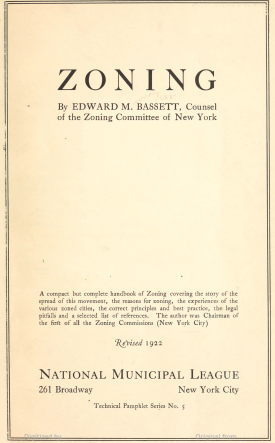About This Book
A compact but complete handbook of zoning covering the story of the spread of this movement, the reasons for zoning, the experiences of various zoned cities, the correct principles and best practice, the legal pitfalls and a selected list of reference.
EDWARD M. BASSETT was chairman of the Zoning Committee of New York.

